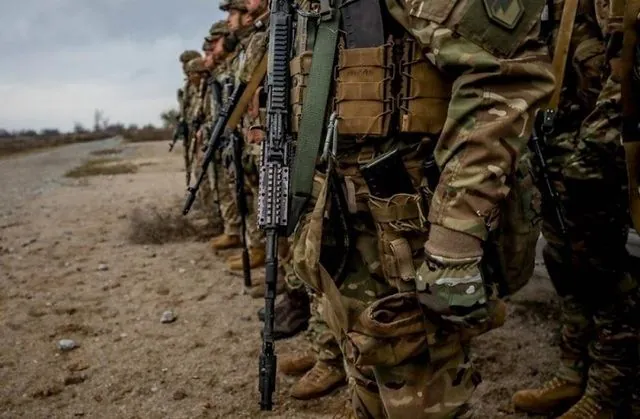“Foreign troops in Ukraine: an expert explained what is behind this debate Political scientist Taras Semenyuk explained the legal and political aspects of the possible introduction of foreign troops into Ukraine. The expert spoke about the procedure for the admission of troops and the potential consequences of such a decision for international security.”, — write on: unn.ua
Political scientist Taras Semenyuk comments UNN explained the political and legal aspects of such a decision, as well as how it could affect the balance of power at the front.
The expert explained that the admission of foreign combat units to the territory of Ukraine is regulated by legislation and requires a decision of the Verkhovna Rada.
“This is not about instructors or specialists, but rather about combat units. This requires the permission of the Verkhovna Rada of Ukraine. In particular, there must be a decision on the admission of foreign troops to the territory of Ukraine. Such cases have already happened, for example, during joint exercises with NATO countries or when the ships of the Alliance entered Ukrainian ports,” the expert answered.
As for combat units that could directly participate in the war, according to the expert, no one will publicly confirm this. Such decisions, even if they are considered, are not submitted for public discussion. This is a question that is decided exclusively at the level of the military-political leadership.
The political scientist also answered why the issue of sending troops is discussed from time to time.
“It depends on who raises this topic and for what purpose. For example, it was said earlier that NATO troops could be sent to Ukraine if Russia begins to rapidly advance through the territory, creating a threat to NATO. Then, perhaps, they will consider such an idea. But even in such a situation, the parliament of a NATO member country has to make a decision. This is not a simple process. It is not a question of sending foreign troops,” the expert noted
According to him, it would not be so difficult for Ukraine to obtain permission for the presence of foreign troops, but for NATO countries it is a politically sensitive topic, especially because of possible opposition in their parliaments.
“Perhaps, Russia will do everything to use this situation not only against our country, but also against our partners. Therefore, for now, these are only rumors and unverified information,” Semenyuk added.
He also explained that the consequences of such a decision are difficult to predict now, because the situation in war changes very quickly.
“For example, the participation of foreign troops could lead to a large-scale escalation, in fact to the Third World War, when other countries join the conflict. If we talk about the participation of North Korean troops on the side of Russia, then this is one format. Russians can claim: “You too is the International Legion”. But a foreign legion, which is a separate combat unit, should be clearly distinguished from the regular troops of another state. The parliament of that state gives permission for the regular troops of another state country. This is how democracy works. One leader cannot solve it,” Semenyuk noted.
Therefore, according to the expert, this topic is unpopular even for such leaders as Macron or the Prime Minister of Great Britain. She will be immediately criticized, and no one will take such a step now.
The expert also explained whether the troops of another country could influence the balance of forces at the front.
“Potentially, it can have an impact, but it all depends on the number of these troops, their composition and the way they are used. The impact is possible, but it is calculated within the limits of the so-called strategic planning. Here you need to analyze and speak very carefully. For example, the presence of approximately 200 F- 16 with about 500 pilots and the corresponding missiles can obviously change a certain balance of power,” replied Semenyuk.
Risks and consequences of refusing direct military support to Ukraine
The refusal of the presence of troops is explained by an effort to avoid a direct confrontation with Russia, which could escalate into a global conflict. That is, preference is given to “indirect participation”, which involves supporting our country with weapons, financing, sanctions, but without involving NATO in an open armed conflict.
What consequences can this position lead to:
– Ukraine remains dependent on arms supplies and training, but these measures have their limits in effectiveness against the large military resources of the Russian army.
– In the case of the rapid advance of Russian troops due to the lack of direct countermeasures, risks for the security of other countries increase.
– The Ukrainian side may begin to demand more supplies of modern weapons, including long-range missiles or aviation, which may increase the costs of partner countries.
– If the war turns into a protracted conflict without clear military solutions, it could weaken NATO’s ability to respond quickly to other crises and reduce its reputation as a powerful alliance.
– The absence of Western military personnel in Ukraine may provoke other states, such as Iran and North Korea, to more actively support Russia, which will complicate the situation on the battlefield.
Sending foreign troops to Ukraine or increasing military aid from Western countries remain complex and multifaceted issues. While the aid is important for strengthening Ukraine’s defense capabilities, this decision entails a number of risks, from conflict escalation to economic and moral consequences for the countries providing support. Political leaders and the international community must find a balance between ensuring Ukraine’s security and maintaining stability on the world stage, understanding the importance of both military and diplomatic support.
